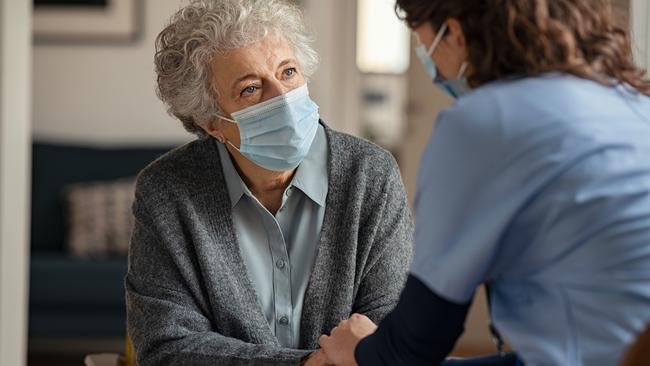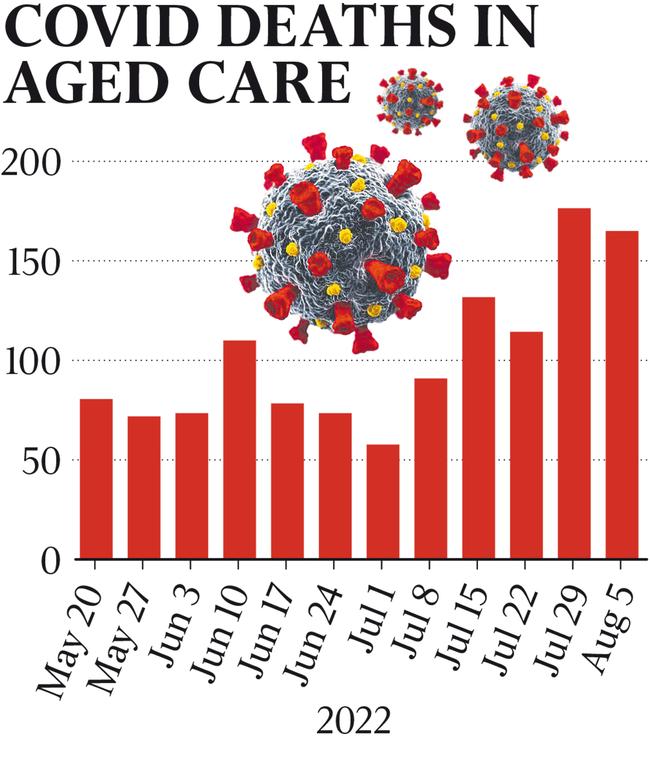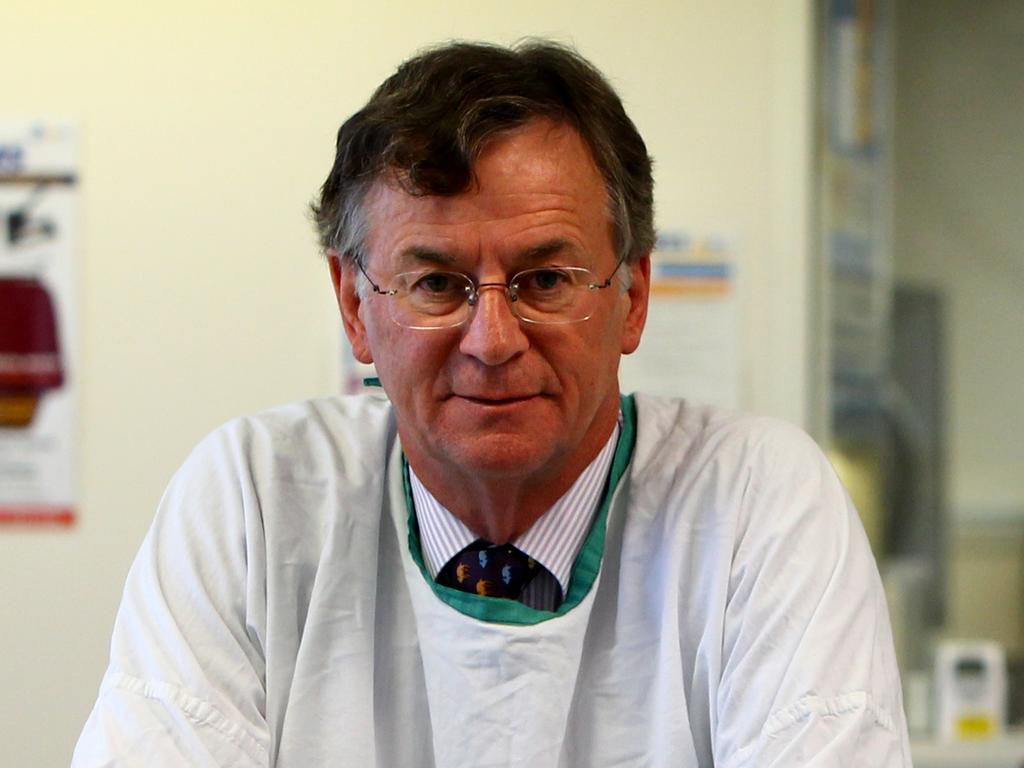Aged-care Covid-19 fatalities surging under Albanese government
Covid-related deaths in residential aged care have increased by a weekly average of nearly 40 per cent since Anthony Albanese took office.

Covid-related deaths in residential aged care have increased by a weekly average of nearly 40 per cent since the Albanese government took office in May, despite Labor’s election pledge to fix the crisis in the sector.
Analysis of Department of Health data conducted by The Australian has revealed an average weekly death rate of 104 people since May 27, up from a rolling average of 76 since January 1 under the former government.
About 1570 people with Covid-19 died in aged-care facilities this year to May 20, marking an overall average of about 314 deaths per month.
However, since the election in May deaths have spiked to nearly 500 per month.
While the deadliest week in aged-care homes is still at the end of January when deaths peaked at 226 during the nation’s Omicron summer, death rates in recent weeks are persistently high and continue to climb.
As the nation battles through another surge in cases, peak aged-care providers remain concerned about the current trajectory of death rates and are bracing for more amid warnings from health experts of a potential lag between infection rates and death.
Case numbers in aged-care homes have accelerated since May, and surged in July when they peaked at more than 15,000 infections. The increase in transmission and deaths comes after Prime Minister Anthony Albanese heavily criticised the former government over its handling of the sector during the pandemic.

Mr Albanese repeatedly attacked former prime minister Scott Morrison for turning his back on aged-care workers while in office, and campaigned on a platform to “put care back into aged care”.
A key pillar of his campaign was unveiled in his budget reply speech when the-then opposition leader pledged to fund pay rises for nursing home workers and outlined $2.5bn in other measures including having a registered nurse on site 24 hours, setting minimum care times and improving food quality.
Opposition health and aged care spokeswoman Anne Ruston said the latest Covid-19 wave resulted in more aged care residents dying in the past 10 weeks than in the first two years of the pandemic, and urged the government to address the “alarming situation”. Covid-19 related deaths in facilities this year have dwarfed the numbers in the first two years of the pandemic, with 917 total deaths in 2020 and 2021, during which various lockdowns and restrictions shut down movement and the broader economy.
Senator Ruston attacked the government for its recent backflip to end free rapid antigen tests to aged care facilities and defence force personnel support in homes.
“At a time when the pandemic was going through a really dangerous phase, the government stopped access to free RATs to aged-care facilities and ended ADF support to aged-care facilities, before being forced to backflip and reinstate that support,” she said. “The government also ended the most-effective vaccination program, Operation Covid Shield, despite health advice that vaccination is the most effective defence against new waves of the virus.
“The government must prioritise protecting older Australians ... particularly because some residential aged-care facilities have third-dose vaccination rates as low as 50 per cent.”
A Health department spokeswoman said higher mortality rates during particular periods reflected the higher number of cases and active outbreaks in the community, and that the number of Covid-19 cases resulting in death had dropped from 33 per cent in 2020 to 3.4 per cent.
She said the government was working to ensure the aged-care sector was better prepared to fight off new waves, through increased access to antiviral treatments and targeted support.
“Due to continued access to antiviral treatments and vaccination, as well as greater preparedness in the sector, there has been a reduction in the case fatality rate across the course of the pandemic,” she said. “This is why the Australian government is continuing to provide all residential aged-care homes with access to Covid-19 vaccination clinics to ensure residents have every opportunity to get their fourth dose to maintain protection from Covid-19 and ensuring oral antivirals are widely available.”
As of August 10, 80.4 per cent of eligible aged-care residents have received a fourth dose.
Aged and Community Care Providers Association chief executive Paul Sadler said providers were bracing for more deaths following a lag in case numbers, with about 40 per cent of homes currently battling outbreaks.
But Mr Sadler said the sector was better prepared for the current surge in cases than the nation’s Omicron summer, when the sector faced a shortage of personal protective equipment, rapid antigen tests and high levels of transmission in the community.
“Clearly when you have many aged care homes exposed to the virus, with a frail and elderly population, even though they are protected with the fourth booster, it’s still a potentially deadly disease and unfortunately you will have more deaths,” he said.
“I think the worst period was January when we had more aged-care homes and the first real uptick in deaths when Omicron first got into our system. Our weekly death toll is the second worst it has been but it‘s still right up there and will continue to be significant with deaths at that high level.”





To join the conversation, please log in. Don't have an account? Register
Join the conversation, you are commenting as Logout